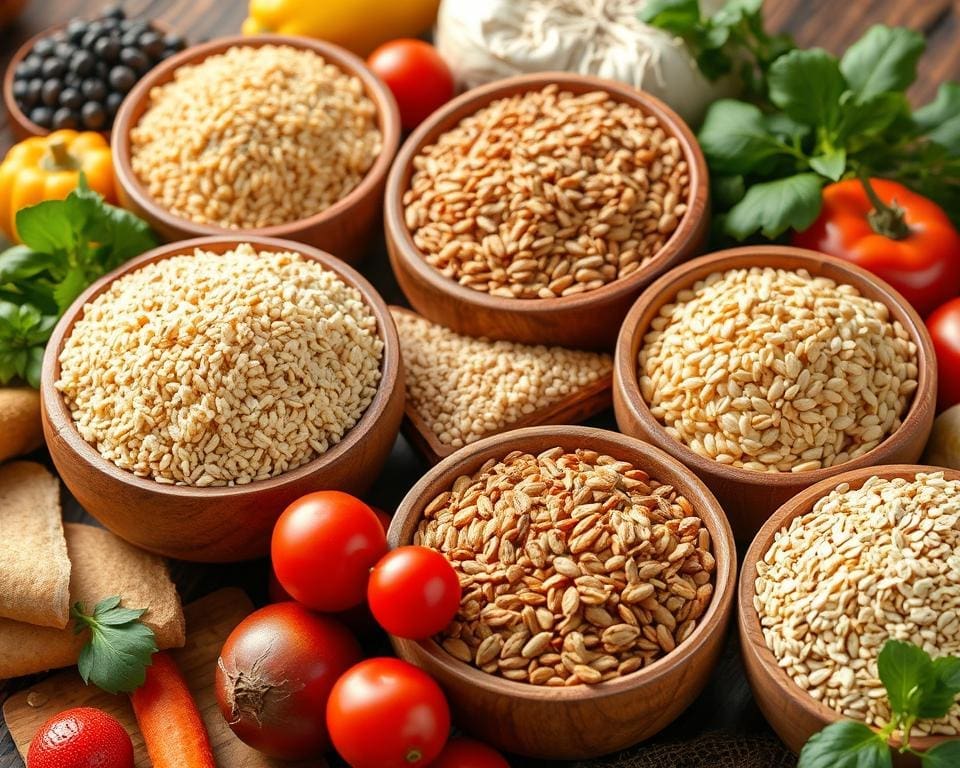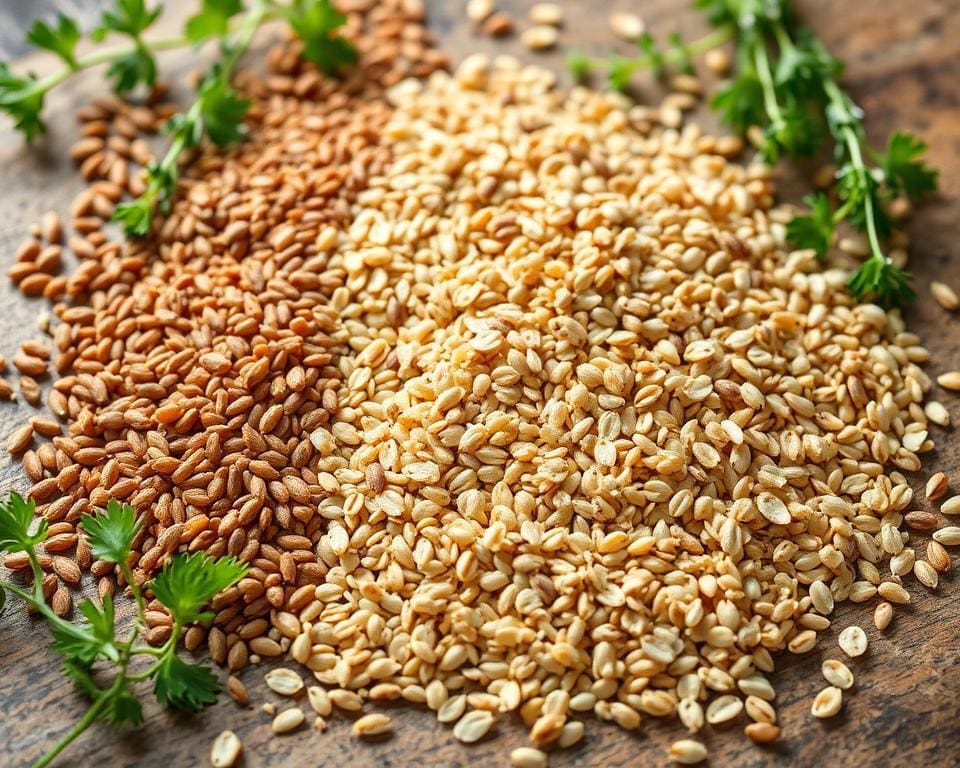Whole grains are more than just a dietary choice; they are a cornerstone for achieving sustained energy and enhanced well-being. Defined as grains that maintain all essential parts of the original kernel, including the bran, germ, and endosperm, whole grains encapsulate vital nutrients that invigorate our bodies. Research highlights that incorporating these nutrient powerhouses into a nutritious diet can significantly boost energy levels while also lowering the risk of chronic diseases. The NHS champions whole grains as a fundamental part of a balanced diet, advocating for their inclusion to optimise health and vitality.
The Importance of Whole Grains in a Nutritional Diet
Exploring the significance of whole grains reveals their essential role in promoting a nutritious diet. Understanding the distinction between whole grains and their refined counterparts is vital for making informed dietary choices. Whole grains include products like wholewheat bread, brown rice, oats, quinoa, and barley, which retain the bran and germ essential for nourishment.
Understanding Whole Grains
Whole grains provide a rich source of complex carbohydrates, vital for maintaining energy levels throughout the day. These grains contain natural fibre, antioxidants, and phytonutrients that bolster overall health. Educational initiatives, such as the Whole Grain Initiative in the UK, aim to raise awareness about the numerous whole grain benefits. Incorporating these grains into meals can significantly enhance dietary quality and contribute to a sustainable, nutritious diet.
Healthier Choices: Whole Grains vs Refined Grains
The comparison between whole grains and refined grains highlights the importance of choosing the former. Refined grains undergo processing that strips away beneficial nutrients and fibre, leading to potential health drawbacks. Research indicates that individuals who favour whole grains often experience lower body mass indices (BMIs) and improved cholesterol levels. This switch can reduce inflammation and the risk of chronic diseases, crucial for anyone striving for a healthy lifestyle.
Whole Grain Benefits for Energy Levels
Whole grains are particularly beneficial for sustaining energy. Their complex carbohydrates digest slowly, offering a gradual release of energy that prevents the spikes and crashes associated with refined grains. This consistent energy release supports concentration and physical performance throughout the day. The fibre content stabilises blood sugar levels, further aiding long-term energy maintenance. Scientific reviews underscore the correlation between whole grain consumption and cognitive function, emphasising their importance in promoting sustained energy.

Whole Grains: A Key to Sustained Energy
Whole grains serve as a vital source of sustained energy that supports an active lifestyle. These nutrient-rich foods work in harmony to provide lasting energy throughout the day, preventing the dreaded energy dips that often accompany refined grain consumption. The unique composition of whole grains, including fibre, protein, and healthy fats, ensures a balanced energy profile that fuels the body effectively.
How Whole Grains Provide Lasting Energy
Incorporating whole grains into your meals can make a substantial difference in your energy levels. Whole grains have a lower glycaemic index compared to refined grains, resulting in a slower release of glucose into the bloodstream. This gradual process maintains stable blood sugar levels, allowing for prolonged vigour without the rapid spikes and crashes associated with high-GI foods. Whole grain options such as spelt, farro, and whole grain pasta are excellent choices for those seeking to enhance their energy management through diet.
The Role of Fiber in Sustaining Energy
The presence of dietary fibre in whole grains plays a critical role in sustaining energy. Not only does fibre improve digestive health, but it also regulates blood sugar levels and helps manage cravings. Soluble fibre, in particular, slows down sugar absorption, which promotes a stable and prolonged energy release. The Health Food Manufacturers’ Association highlights that adults should aim for at least 30 grams of dietary fibre per day, underlining the significance of incorporating whole grain sources into daily meals.
Incorporating Whole Grains into Your Healthy Lifestyle
Embracing a healthy lifestyle begins with simple yet impactful changes to your diet, particularly through the incorporation of whole grains. Start by swapping out refined grain products for their whole grain alternatives—opting for whole grain bread over white bread and choosing brown rice instead of white. These small shifts can significantly improve your nutritional intake and energy levels, paving the way for a healthier you.
To further enrich your meals, explore a variety of whole grain recipes that fit seamlessly into your everyday cooking. Delight in the versatility of whole grains by experimenting with salads that feature farro or quinoa, hearty porridge made with oats, or even baked goods using whole wheat flour. The expansive range of flavours and textures that whole grains offer makes them an essential component of a balanced diet.
Additionally, referring to resources like the Whole Grains Council can provide valuable insights and creative recipes to guide you in this transition. Remember, the journey toward a whole grain-focused lifestyle does not have to be abrupt; making gradual adjustments will not only ease the process but also foster long-term adherence. By rediscovering a multitude of whole grain sources and integrating them into various cuisines, you will find motivation and joy in maintaining a nutritious and sustainable eating pattern.









